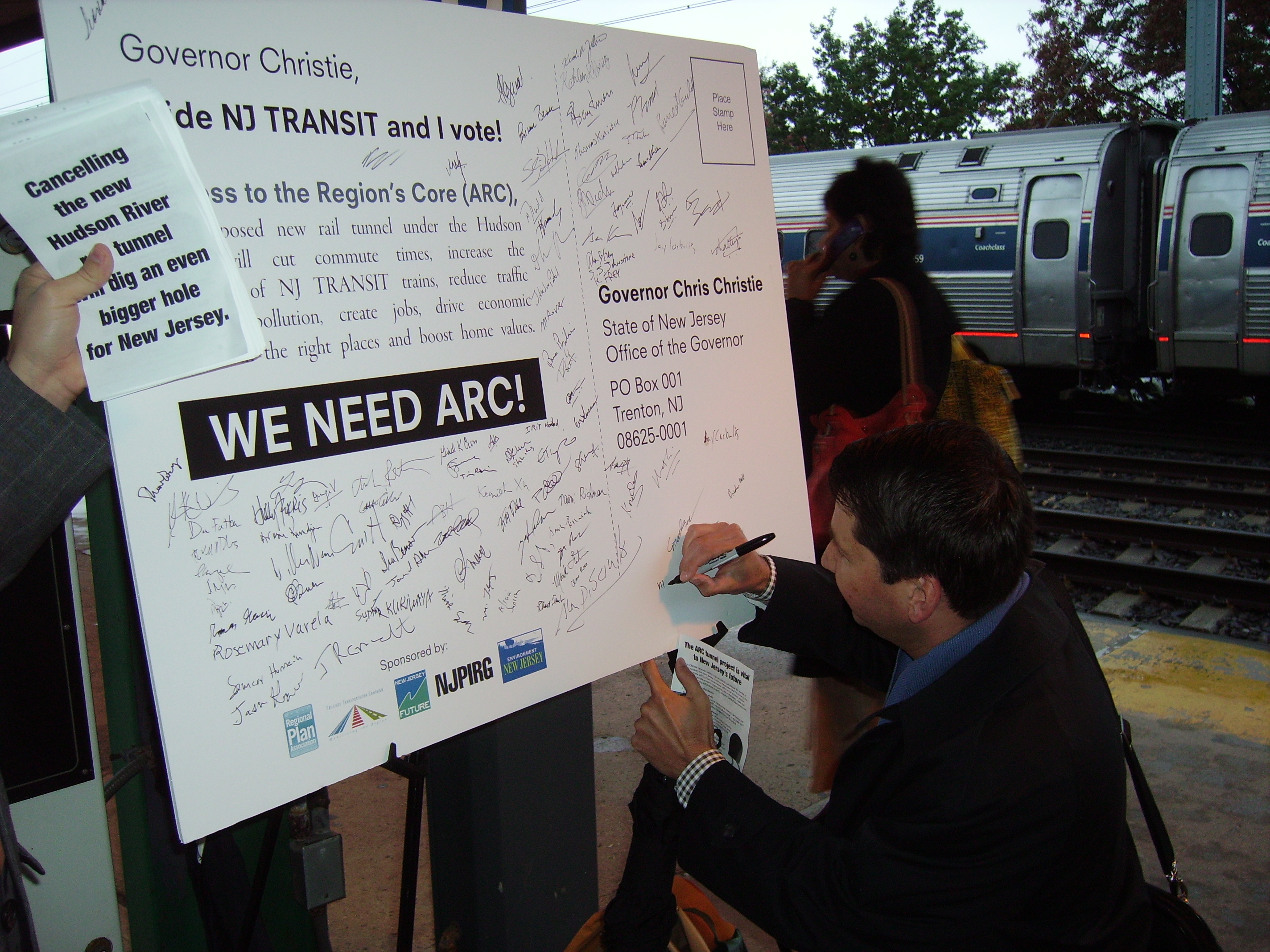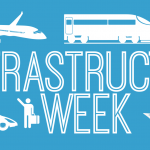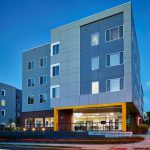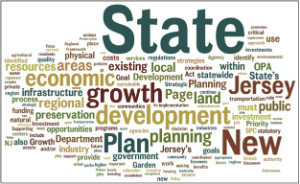New Jersey Future Blog
NJ Transit Fare Increase: An Unfair Approach to Transportation Funding
May 15th, 2015 by New Jersey Future staff
Informational meeting scheduled for May 16; public hearings begin May 18
To help close an $80 million budget gap, NJ Transit has proposed to increase its fares an average of 9 percent, effective Oct. 1, 2015. This would be the first fare increase in five years; the last fare increase averaged 22 percent. As part of this proposal, some bus and train service would also be reduced. Meanwhile, the state’s gas taxes, already among the lowest in the nation, have not been raised since 1988.
As an organization dedicated to ensuring that New Jersey’s growth is directed toward places with existing infrastructure, including transit, and away from the state’s precious open space, New Jersey Future is deeply concerned about the lopsided nature of these cost burdens.
“Market trends and state policy are both directing future residential and employment growth to New Jersey’s urban and more developed suburban areas, which rely heavily on transit,” said New Jersey Future Executive Director Peter Kasabach. “Allowing a fare increase without also raising the gas tax is exactly the opposite of sound economic and growth policy, in effect subsidizing a dying form of sprawl development while creating new barriers to redeveloping our downtowns and cities.”
“A fare increase without any increase in the gas tax also serves to negate any positive locational effects of our current economic-development incentives,” said New Jersey Future Senior Director of State Policy Chris Sturm. “Those incentives signal to employers that we want them in our transit-rich cities and suburbs, but these fare increases are telling their workers that we want them commuting by car.”
“What is particularly perverse,” added Kasabach, “is that as higher fares push people back into their cars, our roads will become even more congested, making commutes more painful and expensive for everyone.
“We know that the costs of our entire transportation system are not covered by the user fees imposed — gas tax for roads and fares for transit. In order to have a complete and functioning transportation system, additional funds are needed,” said Kasabach. “It is patently inequitable to exempt those who commute by car from sharing these costs, while at the same time shifting more of the burden onto transit riders. Even more unfair is the fact that these high transit fare costs fall disproportionately on those who can least afford to bear them — low-income workers without cars, who need access to transit in order to earn a paycheck.
“These two fare increases in the past six years have not been matched with any increases in general road fees,” Kasabach concluded. “It’s time to align our transportation revenue generation with our state policy, efficient land use and the state’s economic future; and it’s time for drivers to pay their fair share.”
An informational meeting is scheduled for Saturday, May 16, from 1:00 to 4:00 pm in the Carl T. Valenti Community Room at the New Brunswick Public Library, 60 Livingston St. Public hearings are scheduled beginning Monday, May 18, at the following times and locations:
ATLANTIC CITY
Atlantic City Rail Terminal Lobby
One Atlantic City Expressway
FREEHOLD
Monmouth County Agricultural Building
4000 Kozloski Road
Tuesday, May 19, 5:30 – 8:30 pm
SECAUCUS
Frank R. Lautenberg Rail Station
County Road and County Avenue
CAMDEN
Camden City Hall – Council Chambers
2nd Floor, 520 Market Street
NEWARK
NJ TRANSIT Headquarters Board Room
One Penn Plaza East
HACKENSACK
One Bergen County Plaza
Learning Center, 4th Floor
Thursday, May 21, 5:30 – 8:30 pm
TRENTON
Trenton Transit Center,
72 South Clinton Avenue
MORRISTOWN
Morristown Town Hall
Senior Community Center, 3rd Floor
200 South Street
PATERSON
Paterson Museum
Thomas Rogers Building
2 Market Street
The public will also be able to comment on the proposal in writing via NJ Transit’s online contact form (see link in right rail), which will be open until 11:59 pm Thursday, May 21.
Comments may also be dropped off at NJ Transit customer service offices or mailed to:
Public Hearing Office- Fare Proposal Comments
One Penn Plaza East
Newark, NJ 07105


















It is also important to clarify that the gas tax is not a percentage of the per gallon cost of gas, so the gas tax does not rise when the cost of gas rises. I think that many people are under the false perception that the gas tax is like the sales tax, and that therefore it at least keeps up with inflation.
Blog: NJ Transit continues its assault on service to Little Falls
http://blogs.northjersey.com/blogs/korotkin/comments/nj_transit_continues_its_assault_on_service_to_little_falls/
No gas tax increase since 1988, that is 27 years. It is symptomatic of poor political leadership. NJ has not risen above its reputation of poor governance. When push comes to shove, it always the politically weakest parts of the public that gets hit in NJ. Any increase in bus fares should be matched by an increase in gas tax. That means the gas tax, at a measly 18 (1988 cents per gallon) needs to be raised 31 percent. Can the drivers of NJ fork over another 6 cents per gallon? It is still the best deal in the Northeast!